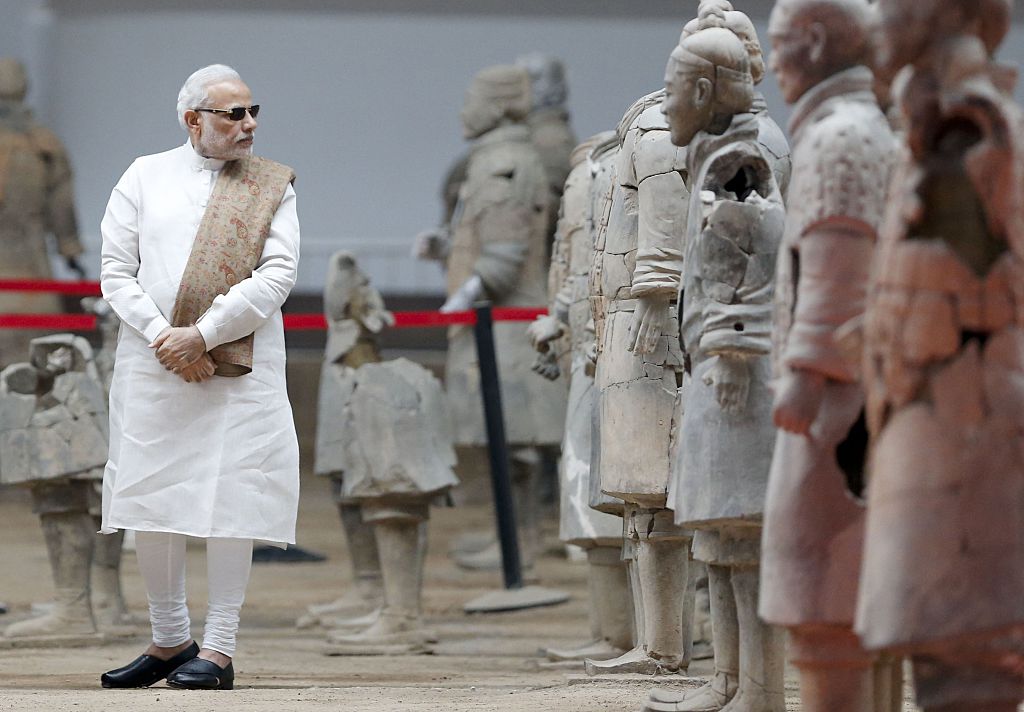- Saturday, July 27, 2024

By: Shubham Ghosh
While India’s relations with neighbouring China have not exactly witnessed good times under the prime ministership of Narendra Modi as the two countries have found themselves at loggerheads on a number of a number of times over border since 2014, a journalist in China has said that the Indian prime minister has a positive image among most people in his country who think that the latter is capable of maintaining a balance between the world’s major nations.
Mu Chunshan, a journalist who is known for analysing Chinese social media, especially Sina Weibo (akin to Twitter in that country) said this in an article ‘How is India viewed in China’ in The Diplomat.
Sina Weibo has more than 582 million active users.
“Prime Minister Narendra Modi has an unusual nickname on the Chinese internet: Modi Laoxian. Laoxian refers to an elderly immortal with some weird abilities. The nickname implies that Chinese netizens think Modi is different – even more amazing – than other leaders,” he wrote.
“They point to both his dress and physical appearance, seen as Laoxian-like, and some of his policies, which are different from India’s previous ones.” Mu added.
On India’s ties with other major nations, the Beijing-based journalist said, New Delhi can enjoy friendly relations with all of them, be it Russia, US or Global South nations, and some Chinese netizens find this “very admirable”.
“So the word ‘Laoxian’ reflects the complex sentiment of Chinese people toward Modi, combining curiosity, astonishment, and perhaps a dash of cynicism,” Mu wrote.
“I have been doing international media reports for nearly 20 years and it is rare for Chinese netizens to give a nickname to a foreign leader. Modi’s nickname stands out above all others. Clearly, he has made an impression on Chinese public opinion,” he said.
Modi has hosted Chinese president Xi Jinping and former premier Li Keqiang since coming to power in 2014 and also held two informal summits with Xi in Wuhan in China and Mamallapuram in India, which fuelled expectations of improvement in battered ties between the two Asian powers.
Their relations plummeted following physical clashes between their troops in eastern Ladakh in mid 2020 and the two sides have held several rounds of high-level military commanders’ talks to improve the situation on the ground. New Delhi has said that relations with China cannot be normal unless peace returns in the border areas.
Modi also became well known in China due to the fact that he interacted with the Chinese public through his account on Sina Weibo which he opened in 2015, the year he visited China, and had over 2.44 lakh (0.24 million) followers.
However, he exited the platform in July 2020 after his government banned 59 Chinese apps to send a “strong message at the border, on the economic front and at a personal level too,” a leader of India’s ruling Bharatiya Janata Party said.
Mu also wrote that the Chinese netizens believe China’s attempts to use its “all-weather ally”, Pakistan as “unrealistic” as the gap between the two South Asian neighbours is “getting wider”, making an apparent reference to the political and economic meltdown Pakistan is currently seeing.
“The facts over the past nine years have proved that China and India have more room for cooperation. For example, China’s trade with India is worth USD115 billion a year – far more than China’s trade with Pakistan, which sits at around USD 30 billion”, Mu wrote.
“Of course, China has not forgotten Pakistan. But many Chinese netizens have a realistic view of the two South Asian neighbours. The argument is very sober: The idea of using Pakistan to restrain India is becoming more unrealistic because the gap between Pakistan and India is getting wider”, he said.
(With PTI inputs)